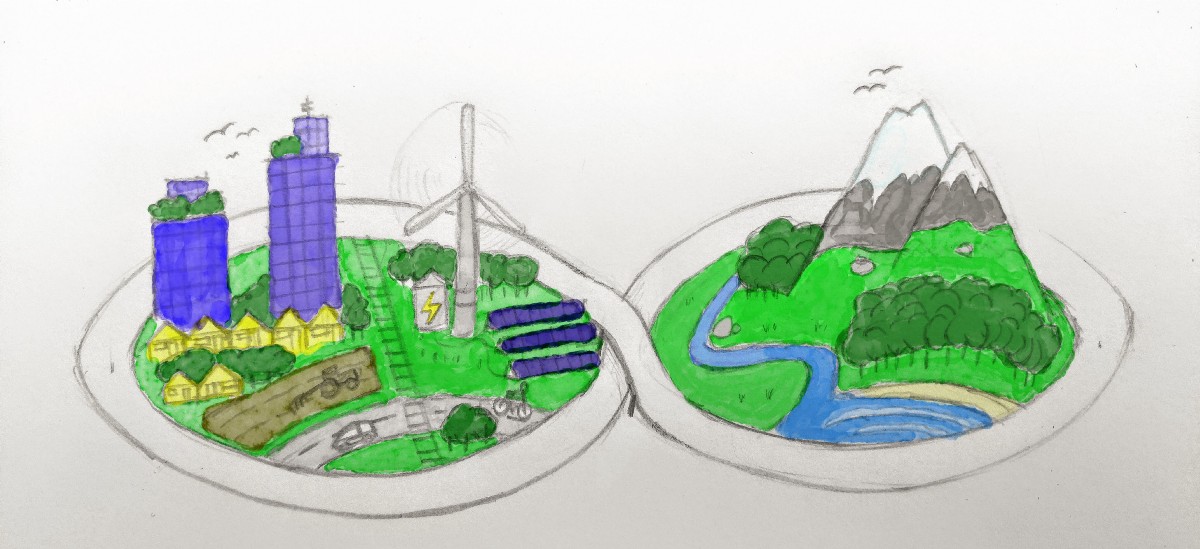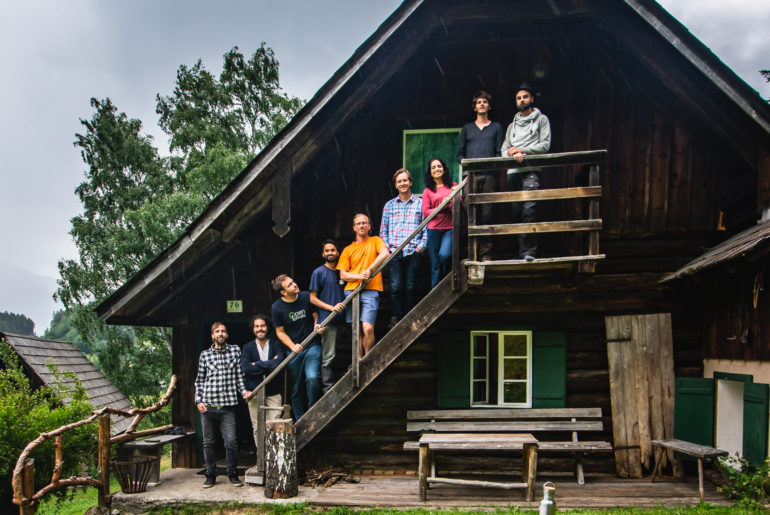No concept is more inflationary, misused and at the same time so important.
This article outlines the importance of the initial sustainability concept and how it describes our relationship with the world and the nature over time. Today’s inflationary and unrelated use of the sustainability term is weakening the meaning of the underlying concept.
We believe that a differentiated view on the sustainability concept will help to foster a deeper discussion and a better understanding of the importance of a farsighted resource management.
The goal of this article is to identify and distinguish the core sustainability concept from the inflationary and unrelated use. For this, we propose the idea of re-framing it’s initial meaning and importance using a simple definition and a distinguishable terminology.
Why is sustainability so important?
Overshoot
In a limited world with a constantly growing population and economy, natural resources are used up faster than they can be regenerated. We have exceeded the carrying capacity of the global ecosystem.
Example of natural resources exploitation
Deforestation is one prominent example of the increasing demand and over-use of natural resources. In the last 25 years, the world lost a forested area of almost 1.3 million square kilometers which is nearly equivalent to the size of South Africa.
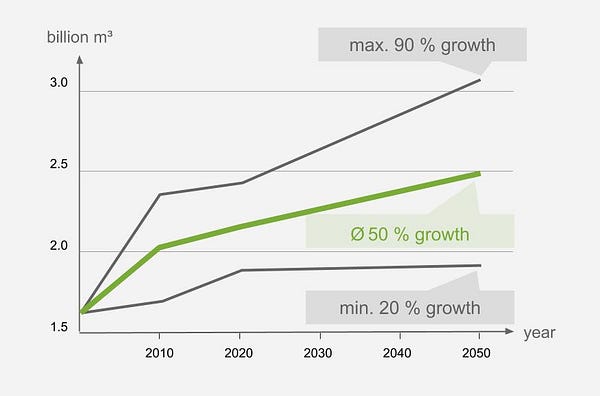
A reverse trend is not likely as various predictions show an increasing worldwide timber demand.
Today’s and future generations already suffer from direct or indirect effects of over-exploitation of our natural resources which has led to droughts, floods, desertification, salinization of soils, forest fires, pollution of the air, and destruction of habitats for plants and animals and the livelihood of millions of people.
Use of the sustainability term
The recent history of sustainability
At the beginning of the 80s, the term and concept of “sustainability” were known and popular only by a small group of environmentalists and environmental economists. However, due to the awareness of a heavy deterioration of the human environment and the natural resources, sustainable development has been put on the international political agenda by the UN, namely the Brundtland Commission. In their publication, Common Future (also called Brundtland Report), published in 1987, they defined a sustainable developmentthat meets the needs of the present without compromising the ability of future generations.
Increasing abundance
The popularity of the term “sustainability” has grown rapidly from the mid-1980’s as can be seen in the following figure. It shows how often the sustainability term appears in literature.
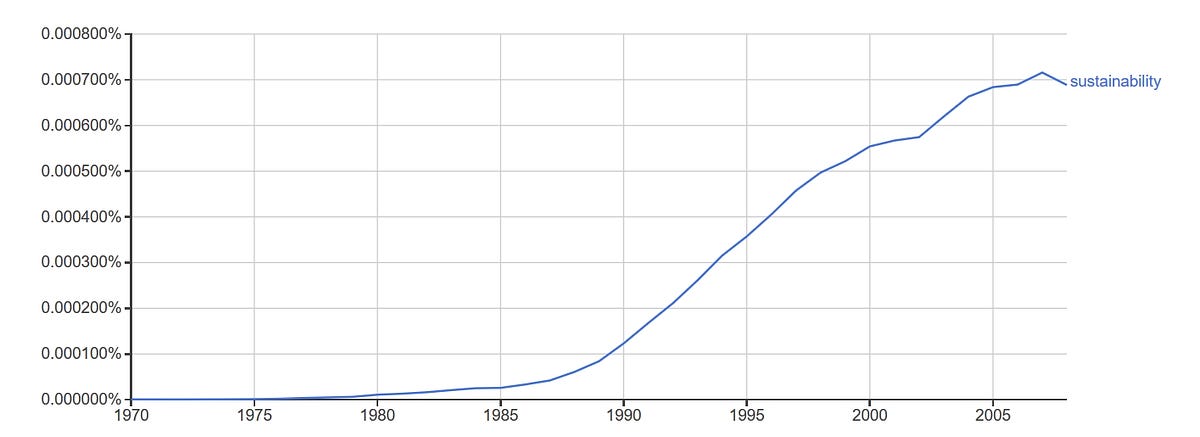
In many cases, though, the increased use of the term has taken place without the underlying concept.
Misuse of sustainability as an attribute for everything
Instead of focusing on environmental sustainability, today, the term sustainability has expanded even further and has become part of the global jargon and is widely used by multiple disciplines and sectors and in many cases totally unrelated to its original meaning. We find:
- Sustainable marketing
- Sustainable communication
- Sustainable economic growth
- Sustainable medication
- Sustainable business growth
- Sustainable HR
- Sustainable PR
- Sustainable football
- Sustainable relations
- Sustainable politics
- Sustainable military products
- Sustainable pub
- Sustainable beef production
- Sustainable education
- Sustainable supply
- Sustainable tobacco
- Sustainable beauty
- Sustainable sex
- Sustainable diaper
- Sustainable assessment
- Sustainable nuclear power
- Sustainable aviation
- Sustainable conflict management
- Sustainable profit growth
- Sustainable destruction
… and the list goes on!
The misuse and omnipresence of the word “sustainability” cause people to not notice its importance. If everything can be connected to the buzzword “sustainability”, who can still take the concept seriously?
Sustainability concepts
Apart from the obvious misuses, the sustainability discussion which had its roots in environmental sustainability has quickly expanded to social and economic sustainability, known as the “Three pillar concept” or “Three dimensions of sustainability”.
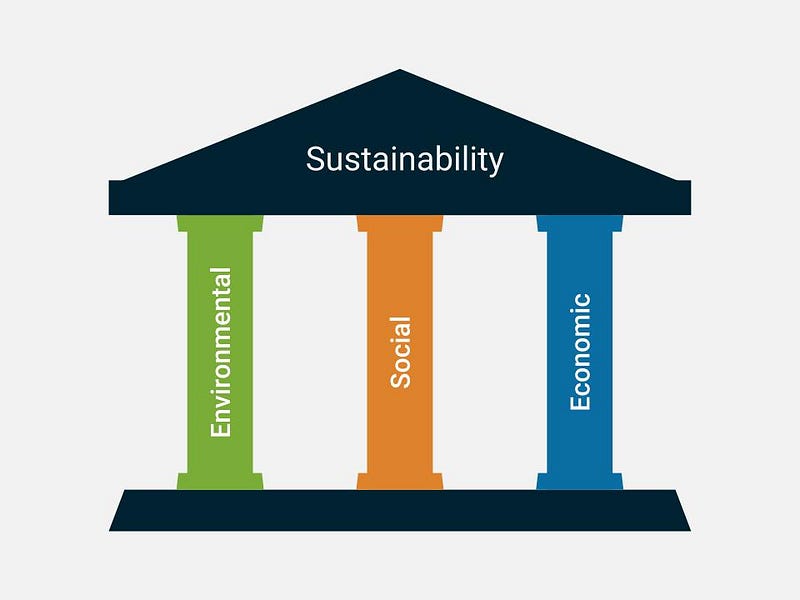
Whereas social sustainability depends on economic sustainability and vice versa, both, strongly depend on environmental sustainability. The dependency of the environment from social and economic sustainability is much smaller. For millions of years, the environment has managed well without both of them. In this sense, the “Three pillar concept” does not fully represent the fundamental role of the environmental component in the sustainability discussion.
From a system thinking viewpoint, the human system is a dependent subsystem of the larger system it lives within: the environment. Therefore, of the three, environmental sustainability must be society’s top priority.
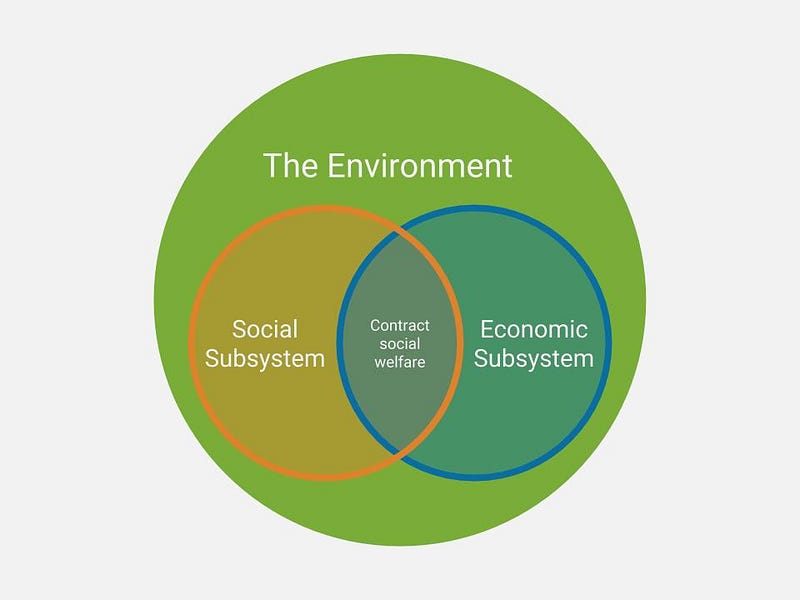
A side note
Ironically, also the contextual appropriate use of the sustainability concept in the international climate debate has lead to a decreasing importance of it.
The dominance of sad news such as the endangered Polar Bear starving on a lost floe due to global warming, or in the case of deforestation, the little and lonely Orangutan scared to death in the middle of the palm oil plantation, create a feeling of powerlessness on a personal level. This causes anxiety which leads to what psychologists call backfiring. People start to ignore or even deny facts to release themselves from the pressure on their self-esteem.
The more scientific information about the severe effects of global warming is published, the more people start to ignore or deny the effects of climate change. Since 1989 there is a decline in personal concern about the effects of global warming. Per Espen Stoknes discusses this in many examples and in detail what he is calling the Psychological Climate Paradox in his Book What we think about when we try not to think about global warmingand how to address this effect with a positive and actionable communication strategy.
Re-framing sustainability
Working in the forestry and environmental sector, we need a clear, concise and distinguishable concept and a vocabulary to effectively communicate preconditions for sustainability. We, therefore, propose
- a concept definition — which is not a new concept — that clearly describes the specific character of the core sustainability, and
- the use of the word “sustainability” in conjunction with an attribute, that allows to specify the sustainability one is talking about, e.g. economic sustainability, social sustainability or environmental sustainability.
Definition of the core sustainability concept
Priority: The environmental sustainability comes first. The social and economic sustainability are depending subsystems.
- Environmental sustainability > social and economic sustainability
Beneficiaries: Those who will suffer when no sustainability is achieved are the beneficiaries of the sustainability concept!
- Beneficiaries = people + animals + plants
Constant natural capital rule: We need to maintain the quality and quantity of the natural resources — also named natural capital — constant over time.
Environmental sustainability
When discussing a specific sustainability concept like the core sustainability concept we need a distinguishable terminology.
Addressing the core concept of sustainability, we propose to use “environmental” in conjunction with the sustainability term. The word pairEnvironmental Sustainability helps to clearly distinguish the concept and the term from the unrelated use.
Comments of the author
The intention of this article is not to present a finished re-framed concept and terminology for sustainability. The goal is to activate a vital discussion on how we can bring back the attention to the core concept of Environmental Sustainability.
There has been no time in human history at which a sustainable treatment of our environment has been more important for our common future than today.
Get up, stand up for Environmental Sustainability.

